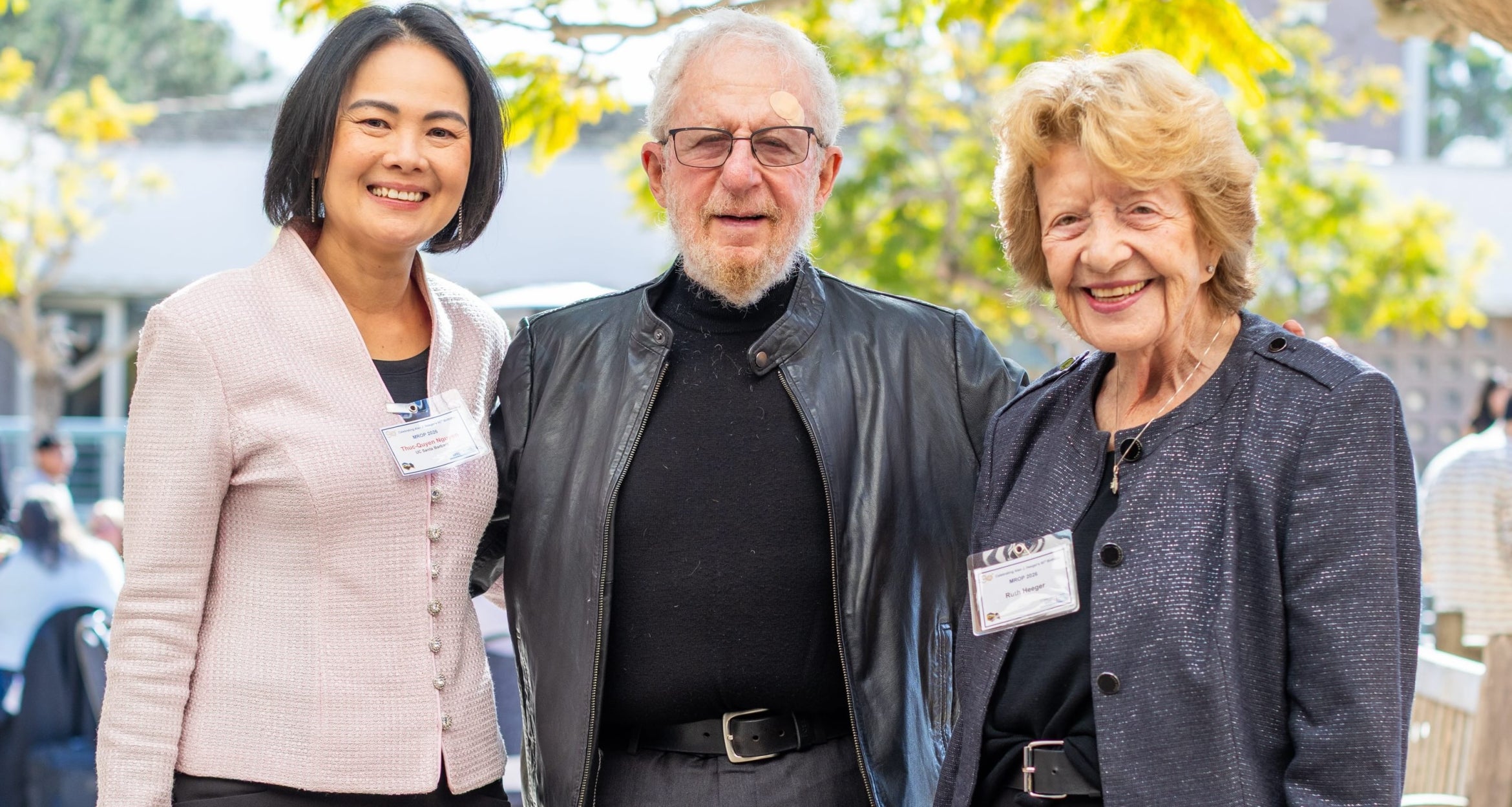A Sustainability Star
When it comes to sustainability achievements, UC Santa Barbara isn’t just as good as gold — it flat out is gold.
The Association for the Advancement of Sustainability in Higher Education has awarded UCSB a gold rating in the latest iteration of its Sustainability Tracking, Assessment & Rating System (STARS). The leading tool for measuring higher education sustainability performance, STARS assessments are valid for three years. UCSB also scored a gold in 2014.
“I am delighted that UCSB has again attained a STARS gold rating,” said Bruce Tiffney, a professor of earth science at UCSB, a faculty member and former dean of the College of Creative Studies, and co-chair of the Chancellor’s Sustainability Committee. “STARS is the established standard measuring our success in achieving sustainability goals across a range of campus functions, from energy and water use through maintenance, research and education, among others. This accomplishment is a testament to the extraordinary dedication and ongoing efforts of the staff, students and faculty of our campus to make UCSB a model for our community and the world.”
A transparent, self-reporting framework for colleges and universities in the U.S. and Canada, STARS is the leading tool for measuring higher education sustainability performance. With nearly 800 participating institutions, it is the most thoroughly vetted and extensively tested system of its kind.
UCSB is among just 54 higher education institutions that partnered in the original STARS pilot assessment in 2009. Across the University of California, only three other campuses are currently rated: UC Riverside, UC Santa Cruz and UC Merced, which all earned gold ratings in the most recent review. Nationwide, only 29 universities or colleges achieved gold status.
“STARS 2.1 is more rigorous than earlier versions and UCSB has been able to achieve higher points each time we have submitted,” said Mo Lovegreen, UCSB’s director of sustainability. “It is clear we are on a good path and it is always helpful to have a system to compare us to other institutions. We’ve been a national leader in this area for more than a decade and going through the STARS process helps us re-evaluate where we are and allows us to have robust conversations both on campus and within the UC system about future directions for campus sustainability.”
Under STARS’s self-reporting model, participating campuses undertake an exhaustive review of their own sustainability endeavors and achievements across operations, administration, research and teaching and more. The rankings highlight the success of efforts in everything from curriculum, public engagement, purchasing, transportation and energy to air and climate, food and dining, buildings, grounds, waste, water, diversity and affordability, well-being, innovation and leadership.
A team of students and staff, led by Lovegreen, spent nearly 800 hours compiling the campus’s STARS submission for this latest round of rankings. Among institutions achieving gold in the last 12 months, UCSB ranked fifth with a score of 73.4, In the last 24 months, 198 institutions were ranked, 64 of which earned gold. Of these, UCSB’s latest score places it as the 13th highest ranked institution overall.
“We’ve made big strides in many areas, including water reductions, even while bringing additional buildings online,” Lovegreen said. “With the drought, our faculty, staff and students have all played a critical role in reducing our water usage. There are still some challenging areas we have yet to address, such as strengthening our rainwater management policy, increasing our waste diversion and increasing our onsite renewables. But we’ve developed a plan for next steps to move us forward, with the ultimate goal of achieving STARS Platinum in 2020.”
STARS is intended to engage and recognize the spectrum of higher education institutions, from community colleges to research universities, including those just starting their sustainability programs as well as long-time campus sustainability leaders. The STARS ratings encompass long-term sustainability goals for already high-achieving institutions and entry points of recognition for institutions taking their first steps toward sustainability.







